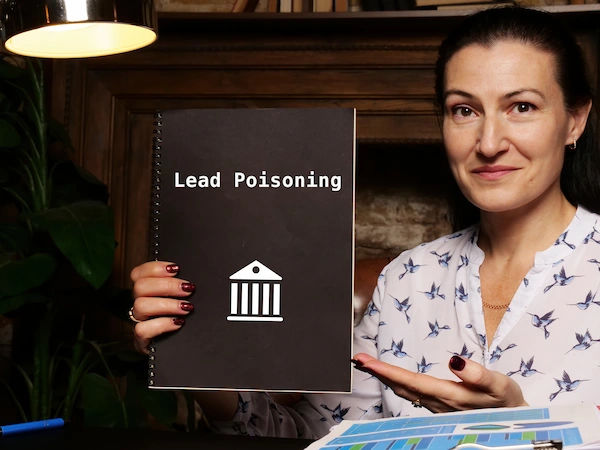Coughing Up Blood: Causes, Symptoms, and When to Worry
Know all about coughing up blood, is it's from the lungs or just bloody vomit, causes, when it is a medical emergency and more.


Introduction:
Noticing blood when you cough can be a frightening and alarming experience. Medically known as hemoptysis, coughing up blood is a symptom that demands attention, as it can signal a range of underlying health conditions, from severe bronchitis to more serious issues like a blood clot or lung disease. While a small streak of blood in your phlegm might be due to simple throat irritation from violent coughing, larger amounts are a clear sign to seek medical evaluation. This article will guide you through the potential causes, from the common to the critical, explain how doctors determine the underlying reason, and outline the crucial steps you should take. Your health is paramount, and understanding this symptom is the first step toward addressing it.
Is It Really Blood From Your Lungs? Hemoptysis vs. Hematemesis
The first critical step is to confirm the source of the blood. True hemoptysis means the blood is originating from your respiratory tract—your lungs or bronchial tubes. The blood is usually bright red, frothy (because it's mixed with air), and you'll feel the urge to cough it up. It may be mixed with phlegm or sputum.
Conversely, hematemesis is vomiting blood from your gastrointestinal tract, often from your stomach or oesophagus. This blood may be dark red, brown, or look like coffee grounds because it has been partially digested. It's accompanied by nausea and the urge to vomit.
Why this distinction matters: Confusing the two can lead to a misdiagnosis. Telling your doctor, "I'm coughing up blood," versus "I'm vomiting blood," immediately steers their investigation in the right direction.
Consult a General practitioner for Personalised Advice
Common Causes of Coughing Up Blood
The list of potential causes is extensive, which is why a professional diagnosis is essential. They can be broadly categorised.
Respiratory Infections and Conditions
This is among the most common reasons for seeing small streaks of blood.
Bronchitis and Pneumonia
Severe, prolonged coughing from acute or chronic bronchitis can irritate and break small blood vessels in the airways. Pneumonia, a lung infection causing inflammation, can lead to rust-colored or bloody sputum.
Tuberculosis (TB)
This serious bacterial infection was once a leading cause of major hemoptysis worldwide. It remains a significant cause in many areas and can cause extensive lung damage.
Bronchiectasis
This is a chronic condition where the airways are abnormally widened, scarred, and unable to clear mucus effectively. This leads to recurrent infections and chronic inflammation, which often results in daily bloody or blood-streaked sputum.
Lung Cancer and Tumours
This is often the first fear when someone sees blood in their cough, especially in long-term smokers or older adults. A tumour in the lung can bleed as it grows and invades surrounding tissue. Coughing up blood can be an early sign, but it's usually accompanied by other symptoms of bloody phlegm, like persistent cough, weight loss, and chest pain.
Cardiovascular (Heart and Blood Vessel) Problems
Your heart and lungs are intimately connected. Issues with one can affect the other.
Pulmonary Embolism
This is a life-threatening condition where a blood clot travels to the lungs, blocking a major artery. It can cause sudden shortness of breath, chest pain, and coughing up blood or bloody mucus. This is a medical emergency.
Heart Failure (especially Mitral Stenosis)
Conditions like congestive heart failure can cause fluid to build up in the lungs (pulmonary oedema). In severe cases, this fluid can be pink and frothy. Mitral valve stenosis, a narrowing of a heart valve, can increase pressure in the lungs and lead to hemoptysis.
Other Potential Causes
Trauma and Injury
A direct blow to the chest can cause lung contusion (bruising), leading to bleeding.
Autoimmune Diseases
Conditions like Granulomatosis with Polyangiitis (GPA) cause inflammation of blood vessels, which can affect the lungs and kidneys, leading to hemoptysis.
Blood Thinning Medications
Anticoagulants like warfarin or aspirin, while necessary for some conditions, can sometimes make bleeding more likely, even from minor irritation in the airways.
When is Coughing Blood a Medical Emergency?
You should seek immediate emergency care if you are coughing up blood and experience any of the following:
Coughing up more than a few teaspoons of blood.
The blood is dark or contains large clots.
You also have chest pain, dizziness, lightheadedness, fever, or severe shortness of breath.
The bleeding is rapid or worsening.
You have a history of a blood-clotting disorder or are on blood thinners.
Even if the amount seems small, it is never wrong to consult a doctor. If your symptoms persist beyond two weeks, consult a doctor online with Apollo24|7 for further evaluation and to determine if you need in-person testing.
How Doctors Diagnose the Underlying Cause
Diagnosing the reason behind hemoptysis is a systematic process.
Medical History and Physical Exam
Your doctor will ask detailed questions: How much blood? For how long? What does it look like? Do you smoke? What other symptoms do you have? They will listen to your heart and lungs.
Imaging Tests: Chest X-Ray and CT Scan
A chest X-ray is often the first test to look for masses, infections, or fluid. A CT scan provides a much more detailed, 3D view of your chest and can identify smaller tumours, clots, or conditions like bronchiectasis.
Bronchoscopy: A Closer Look Inside
This is a key procedure. A doctor inserts a thin, flexible tube with a camera (a bronchoscope) through your nose or mouth into your airways. This allows them to directly visualise the source of the bleeding and, if needed, take a small tissue sample (biopsy) for analysis.
Lab Tests and Blood Work
Tests can check for infection, anaemia (from blood loss), and how well your blood is clotting. Apollo24|7 offers convenient home collection for tests like CBC (Complete Blood Count) and coagulation panels, making initial diagnostics easier.
Conclusion:
Discovering blood when you cough is undeniably scary, but knowledge is your first line of defense. Understanding the potential underlying causesfrom respiratory infections and chronic conditions to cardiovascular issues, empowers you to have an informed conversation with a healthcare professional. Remember, while some causes are minor, others are severe and time-sensitive. Never ignore this symptom or attempt to self-diagnose. Your health journey starts with taking action. If you have experienced this, even in a small amount, prioritise getting it checked out.
Consult a General practitioner for Personalised Advice
Consult a General practitioner for Personalised Advice

Dr Suseela
General Physician
5 Years • MBBS
Bengaluru
Apollo Medical Center, Marathahalli, Bengaluru

Dr. Rajib Ghose
General Physician/ Internal Medicine Specialist
25 Years • MBBS
East Midnapore
VIVEKANANDA SEBA SADAN, East Midnapore

Dr. Abhirup Chakrabarti
General Practitioner
10 Years • MBBS
Chennai
Dr Abhirup Chakrabarti, Chennai
Dr. Gafur Mansuri
General Practitioner
42 Years • MBBS , AFIH
Ahmedabad
Aliya clinic, Ahmedabad
Dr. Robin Jeya Bensam
General Practitioner
25 Years • MBBS, AFIH, FCIP, FRSH
Chennai
Robin Hospitals, Chennai
More articles from General Medical Consultation
Frequently Asked Questions
1. What should I do immediately if I start coughing up blood?
Stay calm. Note the colour, consistency, and approximate amount. If it's more than a few teaspoons, or if you have chest pain, dizziness, or trouble breathing, go to the emergency room immediately. For smaller amounts, contact your doctor promptly to schedule an appointment.
2. Can a throat infection cause me to cough up blood?
Yes, a severe throat infection or intense coughing from a condition like laryngitis can irritate and break small blood vessels in the throat, leading to small streaks of blood in your saliva or phlegm. However, a doctor should still confirm this diagnosis.
3. I'm a smoker and coughed up a small amount of blood. What does this mean?
For smokers, coughing up blood is a significant red flag. It is a common early symptom of lung cancer, but it can also be from chronic bronchitis. It is absolutely essential that you see a doctor immediately for a thorough evaluation, including imaging like a chest X-ray or CT scan.
4. Are there any home remedies for coughing up blood?
No. There are no safe home remedies for stopping the bleeding itself. The goal is not to treat the symptom but to diagnose and treat the underlying cause. While you await medical care, rest and avoid any activities that might trigger more coughing. Do not take cough suppressants unless specifically advised by your doctor.
5. Can acid reflux (GERD) cause me to cough up blood?
While severe, untreated GERD can cause esophagitis (inflammation of the esophagus) that might lead to bleeding, this would typically result in vomiting blood (hematemesis) rather than true coughing up of blood (hemoptysis). However, GERD can cause a chronic cough, which might indirectly irritate the throat.




